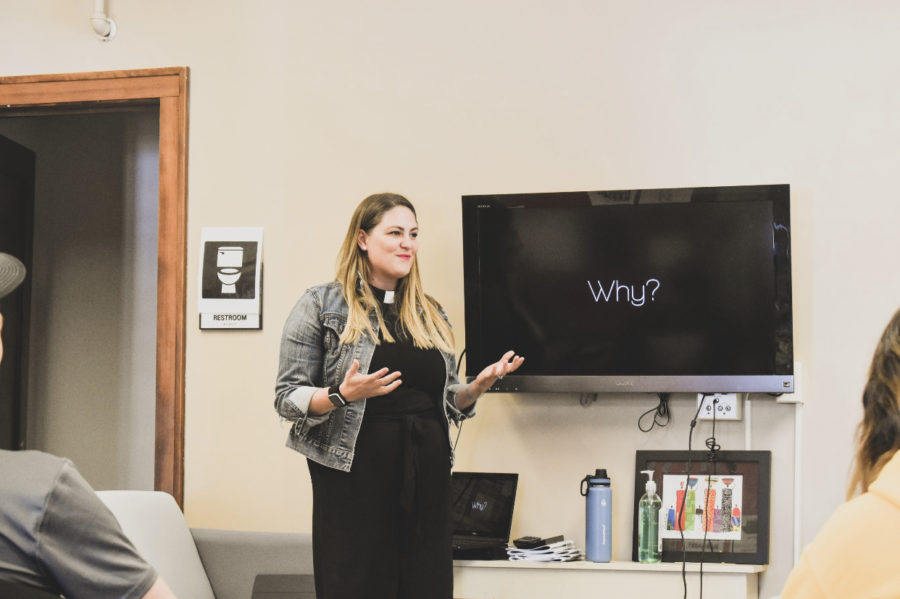Feminist Fridays are back for the spring semester with discussion on digital feminism
Feminist Friday speaker Jennifer Hibben, a campus pastor at the Wesley Center and associate pastor for the Collegiate United Methodist Church, discussed with attendees the idea of Jesus as a feminist on Nov. 15.
January 30, 2020
Feminist Fridays are back for the spring semester.
The first edition of the weekly Feminist Friday conversation hours of the spring semester will take place at 1 p.m. Friday in the Sloss House.
Cyndi Wiley, the digital accessibility coordinator and a program manager for the IT Services Office of the Chief Information Officer, will kick off the first Feminist Friday this semester on the topic of “Digital Feminism.” Wiley is an expert on digital accessibility at Iowa State and also has a lot of capabilities and knowledge about human computer interaction for the underrepresented.
“We can advocate for ourselves, for others that experience disabilities and make our work known digitally in an accessible manner,” Wiley said. “As for social media postings we can include alternative texts for images, [like] screen readers for people who can’t use a keyboard so they can access the information as well.”
Feminist Fridays are a weekly dialogue hour open to students, faculty and community members to allow people to converse over a broad spectrum of issues through a feminist lens. Every Feminist Friday is free to attend and offers a variety of snacks to satiate hunger. However, attendees are welcome to additionally bring their lunches.
Wiley will be hosting an in-person demonstration on how to make Instagram posts more accessible as well as showcasing some of the work of Mona Chalabi, a data journalist, which can be seen on her Instagram @monachalabi.
The Margaret Sloss Center for Women and Gender Equity has recently released this semester’s speaker calendar, which will consist of 10 speakers covering a variety of topics, including discrimination in the LGBTQ+ community, embracing fat as a feminist, and rhetorical issues and hope, hospitality and affective politics in the Syrian refugee crisis.
Each speaker usually presents for approximately 30 minutes before leaving the rest of the hour up for Q&A and discussion. Though some of the topics are academic or based on the speaker’s work, the conversations tend to focus more on the speaker’s experiences.







